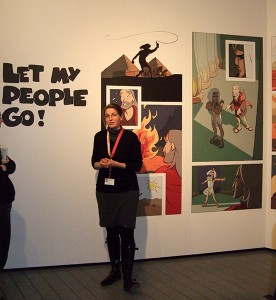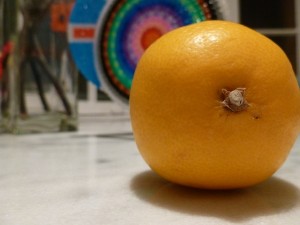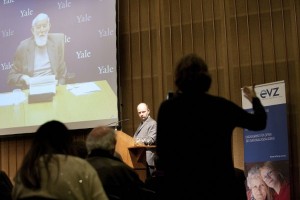This year, the national museum assistant convention of the German Museums Association took place from March 1 to 3 in Frankfurt-am-Main, and the theme was “Museum today: ideals, trends, and perspectives.” The convention offered academic trainees from federal German museums and memorials an extensive array of lectures, excursions, and workshops. Along with all the other museum assistants, I was impressed by the diversity of events. The Historical Museum served as a set starting point, having put nearly its entire premises at the disposal of the convention.

Sabine Kößling in front of the remodeled mural at the Jewish Museum Frankfurt
© photo: Michaela Roßberg, Jewish Museum Berlin
On the day of our arrival, there was already a chance to take a tour through one of the many museums on the embankment of the Main. I visited the Jewish Museum Frankfurt, where our group was guided by Sabine Kößling, a former museum assistant at the Jewish Museum Berlin. She told us about the planned conception of the permanent exhibition, which originates largely from 1988, the year that the museum was founded. The reworking of the exhibition is being done in stages, so that the entire museum won’t need to be closed to visitors until 2014. The section on “Festivals and feast days – religious life”, for example, was being augmented with a large mural depicting the story of Moses and the Pharaoh.
The second day featured a number of workshops. I participated first in one called “Provenance research is power: arm yourself.” → continue reading

